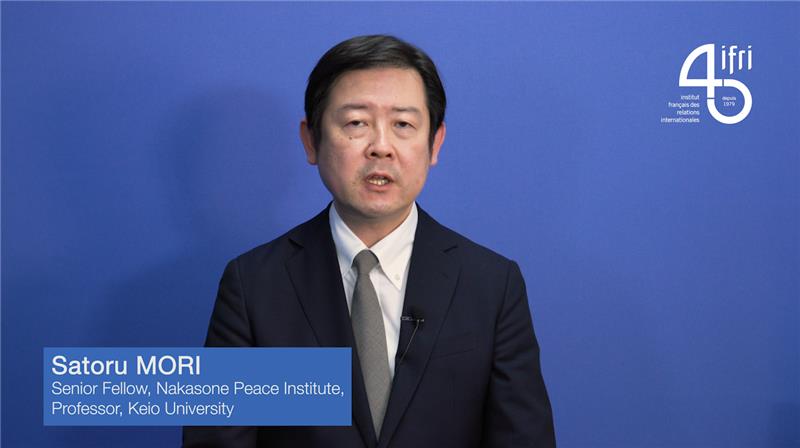Trump's Indo-Pacific Vision & Japan's Strategic Autonomy
Satoru Mori, Senior Fellow at the Nakasone Peace Institute, explores key insights into President Trump's likely priorities for the Indo-Pacific region. His primary concerns include addressing economic trade imbalances with countries like China, Japan, and South Korea. Additionally, he aims to deter regional conflicts, particularly over Taiwan, and wishes to advance the denuclearization of North Korea.

He also delve into how Japan should respond to the second Trump presidency. Key policy adjustments for Japan involve tackling tariff issues by proposing increased imports of liquid natural gas (LNG), grains, and semiconductors. Another important area is defense cooperation, especially regarding the politically sensitive target level of 3.5% of GDP for defense spending. Japan is actively working to strengthen its relationship with the United States in these areas.
Furthermore, the discussion elaborates on the concept of "strategic autonomy" in the Japanese context. This refers to two main elements:
• Enhancement of Japan's defense capability: Japan is currently aiming to achieve 2% of GDP in defense spending by 2027 (based on 2022 GDP) and is considering further increases beyond that. This increase is intended to serve as a deterrent in the region and strengthen the US defense commitment toward Japan.
• Advancing security cooperation with like-minded countries: Japan is expanding its security partnerships beyond the traditional US-Japan alliance. This includes trilateral defense cooperation (e.g., US-Japan-South Korea, US-Japan-Australia, US-Japan-Philippines), collaboration in non-defense areas under the umbrella of the Quad, and security cooperation with European countries such as the IP4 in NATO and the Global Combat Air Program (GCAP) with the UK and Italy. This demonstrates Japan's effort to advance its security not only within the Indo-Pacific but also by reaching out to European partners.
This comprehensive overview provides a clear understanding of the complex dynamics shaping the Indo-Pacific under a potential second Trump administration and Japan's evolving strategic approach.

Media:
Format
Share





